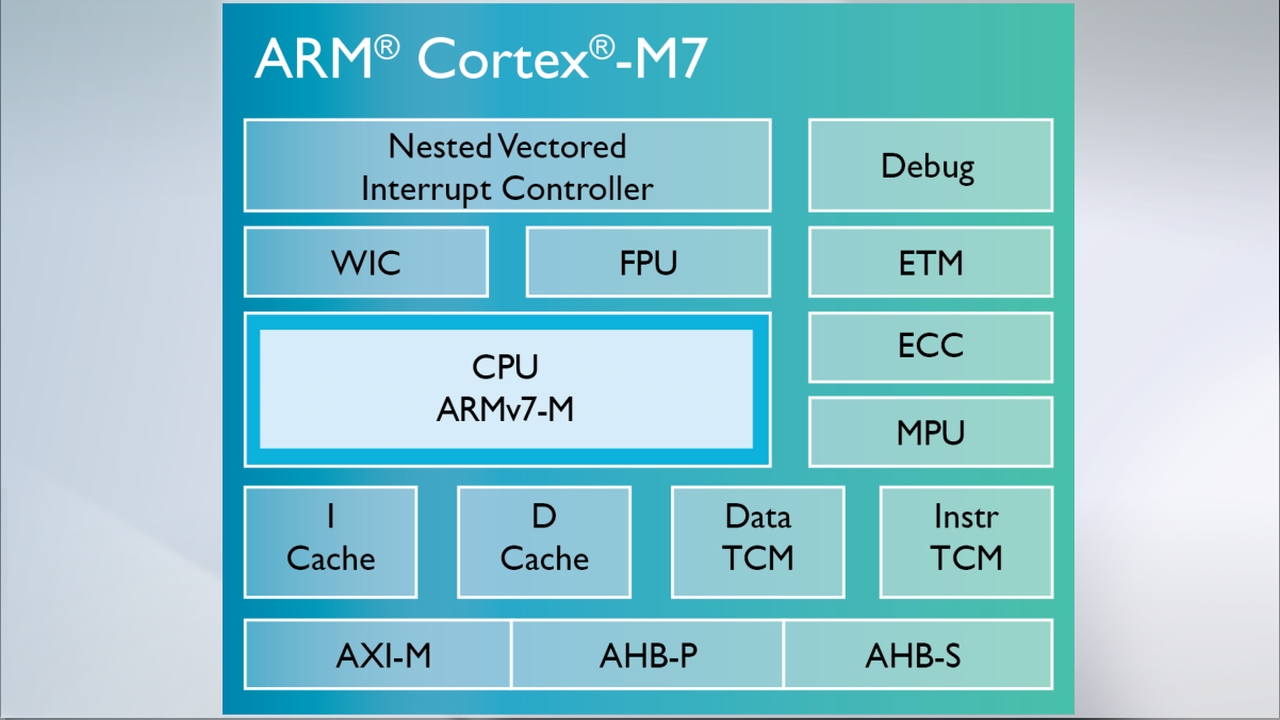ARM introduces update to Cortex-M family
M7-powered products coming soon

ARM has released a new Cortex-M processor, the M7, which it says will offer a 100% improvement in compute and digital signal processing performance compared to existing ARM-based MCU lke the M4.
The performance boosts comes from the fact that the M7 uses a six-stage superscalar pipeline, which allows it to execute two instructions simultaneously, rather than one.
That new product will target a very wide range of business cases, from automotive to factories, including internet of things applications. Atmel, Freescale and ST Microelectronics have already been signed as licensees with many more to follow.
The M7 can be clocked at up to 800MHz on a 28nm manufacturing process (half that on a 40nm one) and at 5.04 CoreMark per MHz, it should hit the 4.000 CoreMark mark at full speed.
As a comparison, a quad-core Cortex A5 SoC delivers 8.5 CoreMark per MHz which means that a single-core is more powerful than a dual-core Cortex-A5 on a per MHz basis. The A5 usually clocks higher which translates into higher overall performance.
ARM also claims that the DMIPS performance of the M7 should range between 2.14 and 3.23 DMIPS/MHz depending on the chosen scenario. In real-life, it will translate into more onboard performance for power-sipping workloads.
That means better image/voice recognition, more connection options, less data being shuttled to and fro devices, more accuracy etc.
Sign up to the TechRadar Pro newsletter to get all the top news, opinion, features and guidance your business needs to succeed!

Désiré has been musing and writing about technology during a career spanning four decades. He dabbled in website builders and web hosting when DHTML and frames were in vogue and started narrating about the impact of technology on society just before the start of the Y2K hysteria at the turn of the last millennium.